Martin R. Fischer
FAMULUS: Interactive Annotation and Feedback Generation for Teaching Diagnostic Reasoning
Aug 29, 2019
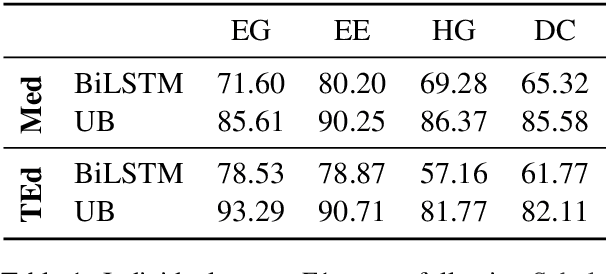

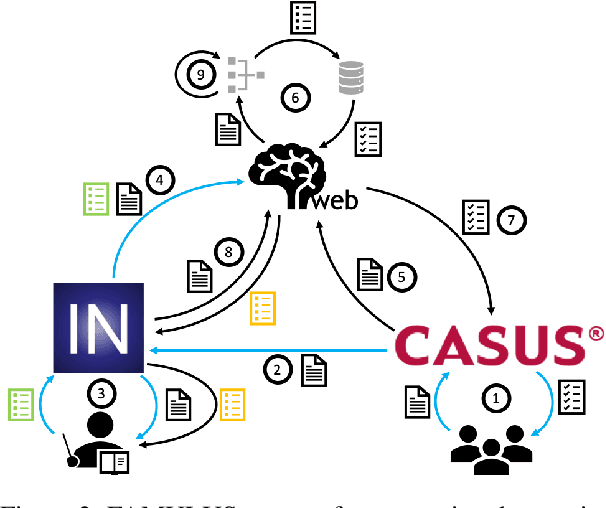
Abstract:Our proposed system FAMULUS helps students learn to diagnose based on automatic feedback in virtual patient simulations, and it supports instructors in labeling training data. Diagnosing is an exceptionally difficult skill to obtain but vital for many different professions (e.g., medical doctors, teachers). Previous case simulation systems are limited to multiple-choice questions and thus cannot give constructive individualized feedback on a student's diagnostic reasoning process. Given initially only limited data, we leverage a (replaceable) NLP model to both support experts in their further data annotation with automatic suggestions, and we provide automatic feedback for students. We argue that because the central model consistently improves, our interactive approach encourages both students and instructors to recurrently use the tool, and thus accelerate the speed of data creation and annotation. We show results from two user studies on diagnostic reasoning in medicine and teacher education and outline how our system can be extended to further use cases.
Analysis of Automatic Annotation Suggestions for Hard Discourse-Level Tasks in Expert Domains
Jun 06, 2019
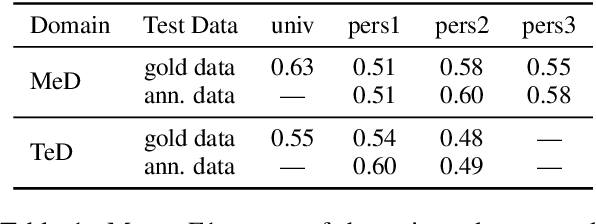
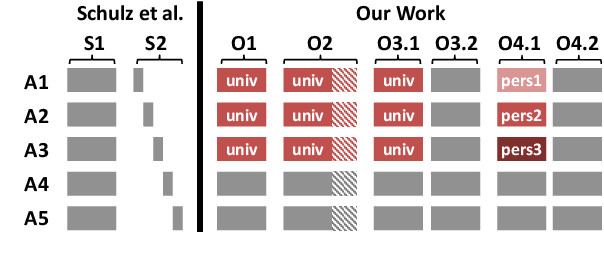
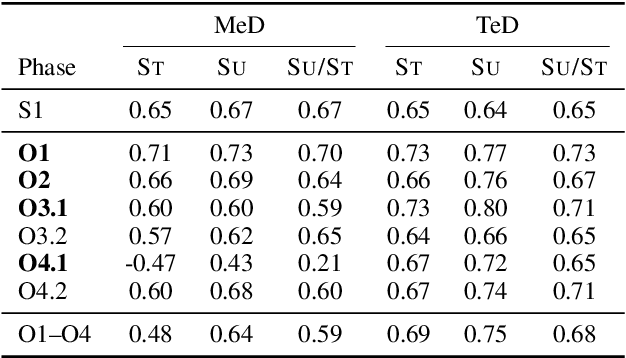
Abstract:Many complex discourse-level tasks can aid domain experts in their work but require costly expert annotations for data creation. To speed up and ease annotations, we investigate the viability of automatically generated annotation suggestions for such tasks. As an example, we choose a task that is particularly hard for both humans and machines: the segmentation and classification of epistemic activities in diagnostic reasoning texts. We create and publish a new dataset covering two domains and carefully analyse the suggested annotations. We find that suggestions have positive effects on annotation speed and performance, while not introducing noteworthy biases. Envisioning suggestion models that improve with newly annotated texts, we contrast methods for continuous model adjustment and suggest the most effective setup for suggestions in future expert tasks.
Challenges in the Automatic Analysis of Students' Diagnostic Reasoning
Nov 26, 2018


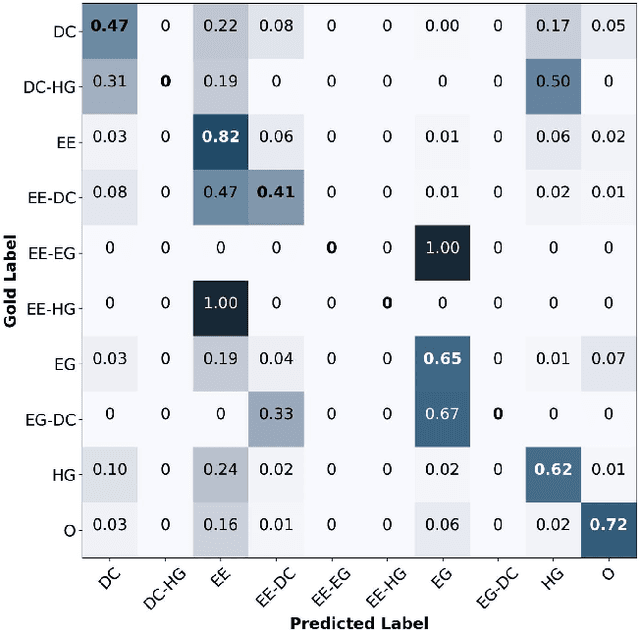
Abstract:Diagnostic reasoning is a key component of many professions. To improve students' diagnostic reasoning skills, educational psychologists analyse and give feedback on epistemic activities used by these students while diagnosing, in particular, hypothesis generation, evidence generation, evidence evaluation, and drawing conclusions. However, this manual analysis is highly time-consuming. We aim to enable the large-scale adoption of diagnostic reasoning analysis and feedback by automating the epistemic activity identification. We create the first corpus for this task, comprising diagnostic reasoning self-explanations of students from two domains annotated with epistemic activities. Based on insights from the corpus creation and the task's characteristics, we discuss three challenges for the automatic identification of epistemic activities using AI methods: the correct identification of epistemic activity spans, the reliable distinction of similar epistemic activities, and the detection of overlapping epistemic activities. We propose a separate performance metric for each challenge and thus provide an evaluation framework for future research. Indeed, our evaluation of various state-of-the-art recurrent neural network architectures reveals that current techniques fail to address some of these challenges.
 Add to Chrome
Add to Chrome Add to Firefox
Add to Firefox Add to Edge
Add to Edge